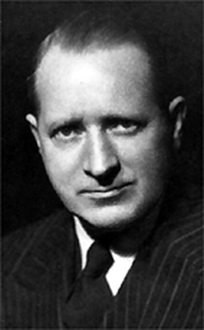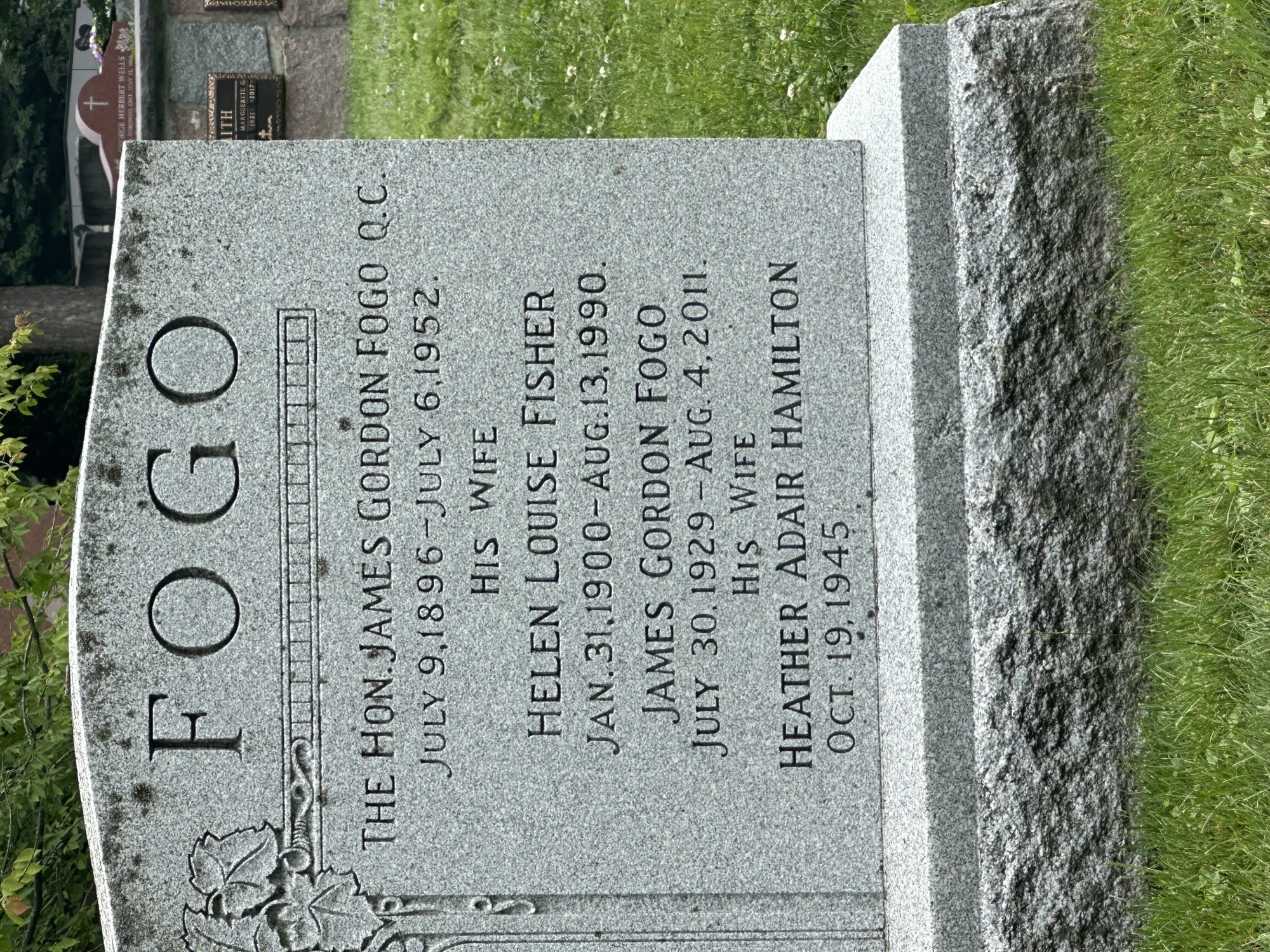
From Battlefield to Senate Chamber: The Journey of J. Gordon Fogo Q.C., Senator
J. Gordon Fogo Q.C., Senator
A Life of Quiet Influence and National Purpose
Section 52
James Gordon Fogo was born on July 9, 1896, in Halifax, Nova Scotia, into a Canada poised for transformation. Raised in a time of imperial ties and regional distinctions, Fogo’s journey would ultimately take him from the battlefields of the First World War to the corridors of national power, shaping Canadian legal, political, and economic life behind the scenes with unmatched diligence and discretion.
As a young man, Fogo answered the call of duty and enlisted in the Canadian Expeditionary Force during the First World War. He served with the 2nd Canadian Siege Battery—an experience that would instill in him a deep sense of discipline, national service, and quiet fortitude. When he returned to Canada in 1919, he didn’t immediately enter law or politics. Instead, he began his post-war life as a high school principal in Sydney, Nova Scotia. It was a transitional role, but it revealed his natural leadership and unshakable belief in building capacity through institutions.
In 1921, Fogo enrolled in the School of Law at Dalhousie University, a decision that would set the course for his professional life. Called to the Nova Scotia Bar in 1924, he quickly joined the respected Halifax firm Burchell & Ralston, becoming a partner just two years later. By 1938, he had earned the distinction of King’s Counsel, a testament to his legal acumen and growing stature in Canadian legal circles. Through his work, Fogo displayed a deep understanding of the intersections between law, commerce, and governance - traits that would define his wartime and post-war contributions.
World War II marked a turning point in Fogo’s career. In 1942, he was recruited to Ottawa as Associate Coordinator of Controls within the Department of Munitions and Supply, one of the most critical arms of Canada’s wartime administration. Fogo’s role was not ceremonial - he was a problem-solver, a systems-thinker, and a fixer. Described by colleagues as one of the government's “ace troubleshooters,” he helped navigate the chaos of wartime industrial production, smoothing over bottlenecks, facilitating complex contracts, and ensuring the machinery of national supply stayed operational.
His wartime contributions extended across multiple boards and advisory groups. He served on the War Contracts Depreciation Board, advised the Economic Advisory Committee, and later lent his expertise to the Dominion Trade and Industry Commission. He also held seats on the board of directors for the Maritime Board of Trade and Algoma Steel, further proving his capacity to bridge public purpose with private enterprise.
Simultaneously, Fogo maintained an increasingly influential role in the Liberal Party. As President of the Nova Scotia Liberal Association between 1939 and 1941, he demonstrated a unique talent for consensus-building. His friendship with Prime Minister William Lyon Mackenzie King deepened during these years, and by 1945, Fogo had risen to become President of the National Liberal Federation. In this national leadership role, he was instrumental in steering the party through turbulent post-war political currents. He co-chaired the pivotal 1948 Liberal National Convention, helping to orchestrate the peaceful leadership transition to Louis St. Laurent. TIME Magazine at the time described him as “a reliable worker behind the scenes,” with a knack for resolving intra-party disputes and shepherding decisions that would stabilize Canadian federal governance for years to come.
Recognizing his contributions and potential, Prime Minister St. Laurent appointed Fogo to the Senate of Canada in 1949. Representing the Carleton division in Ontario, Senator Fogo brought youthful vigour - still in his early fifties - to a chamber often criticized for its inertia.
One editorial at the time quipped, “What the Senate needs is fewer old fogeys and more young Fogos.” In the Senate, he was a principled and pragmatic voice, never a headline-seeker but always a steadying presence. He continued to play a vital role in guiding party direction and providing legal expertise on key issues.
Despite his considerable professional commitments, Fogo retained a full personal and social life. He was an enthusiastic yachtsman and curler and was a member of several prestigious clubs, including the Halifax Club, the Rideau Club in Ottawa, and the York Club in Toronto. In 1927, he married Helen Louise Fisher, and together they raised two children. His lifestyle reflected his character—measured, accomplished, yet rooted in community.
On July 6, 1952, just three days shy of his 56th birthday, James Gordon Fogo died suddenly in La Malbaie, Quebec. His passing came at what many believed was the height of his influence. Tributes poured in, noting not only his achievements but the quiet integrity and sharp mind with which he served his country. “Canada has lost one of its finest behind-the-scenes nation-builders,” wrote one obituary.

Fogo’s legacy lives on at Dalhousie University, where the J. Gordon Fogo Prize for Excellence in Commercial Law and the J. Gordon Fogo Bursary support future legal minds. But perhaps his greatest legacy is institutional: the policies he shaped, the crises he managed, the party he stabilized, and the reputation he built as a man whose contributions were always thoughtful, constructive, and in service to the greater good.

